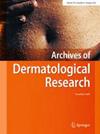Gender, race, and economic factors influencing screening practices in hidradenitis suppurativa: a cross-sectional analysis
Abstract
Hidradenitis suppurativa (HS) is a chronic inflammatory skin condition that significantly impacts patients’ quality of life. Despite its substantial burden, HS remains underdiagnosed and undertreated, particularly among marginalized populations. This study aimed to elucidate the primary social determinants of health (SDOH) and structural determinants of health (StDOH) influencing rates and patterns of screening for patients diagnosed with HS. Using data from the All of Us Research Program database, participants with HS were identified using ICD-10 codes and stratified based on various sociodemographic factors, including race, gender, and income. The primary outcome variables were participation in viral screening and disease screening among HS patients. Statistical analyses were performed to assess the relationship between sociodemographic factors and screening practices. Income and gender had significant impacts on screening practices. Higher-income patients were more likely to receive necessary disease screening and less likely to receive unnecessary disease screening compared to lower-income patients. Non-male patients had significantly higher rates of unnecessary disease and viral screening than male patients. While differences in screening practices within each income level were significant, there were no significant differences across different income brackets or racial groups. These findings suggest that subjectivity associated with individual physicians’ recommendations may contribute to disparities in screening outcomes, especially in lower-income and non-male HS patients. The study highlights the need for more clearly delineated screening guidelines and continued research on the role of SDOH in improving patient health outcomes.

 求助内容:
求助内容: 应助结果提醒方式:
应助结果提醒方式:


